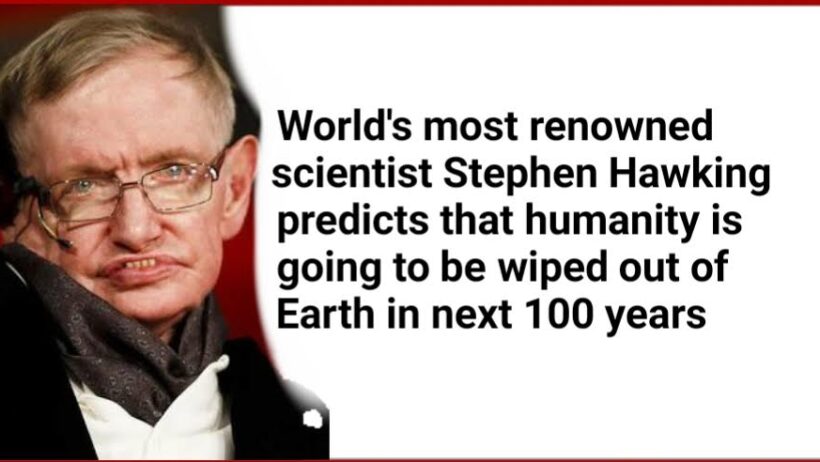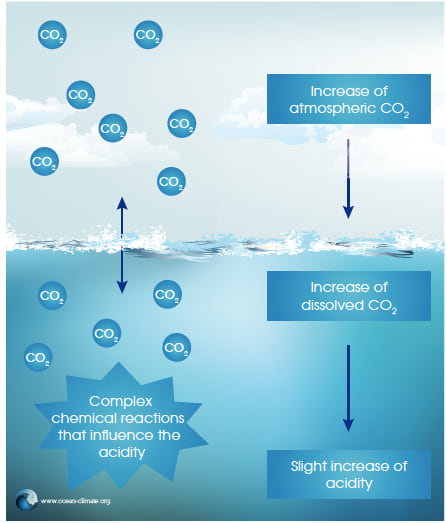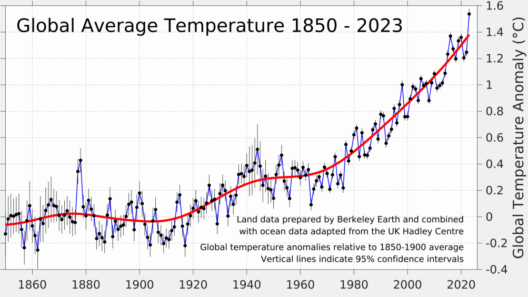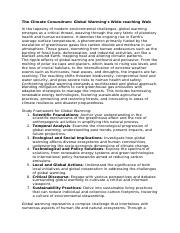Stephen Hawking, the preeminent theoretical physicist, cosmologist, and author, is best known for his groundbreaking work on black holes and the nature of the universe. However, his contributions extend beyond the realm of theoretical physics, touching upon critical issues such as climate change and the existential threats facing humanity. In recent years, his commentary on global warming has piqued the interest of many. Hawking’s observations challenge prevailing perceptions and urge a drastic re-evaluation of our environmental priorities.
To ascertain whether Hawking believed in global warming, one must first comprehend the context in which he made his statements. Hawking’s insights into climate change are not merely reflections of personal concern; rather, they stem from a profound understanding of the scientific principles governing planetary systems. He recognized that human activities—particularly the burning of fossil fuels—significantly contribute to increasing levels of greenhouse gases, resulting in the alarming phenomenon commonly referred to as global warming.
In various speeches and writings, Hawking emphasized the need for immediate action to counteract climate change. He articulated a pressing warning: mankind has merely a hundred years left to abandon Earth and seek refuge among the stars. This statement is emblematic of his view that unmitigated climate change poses an existential threat to humanity. Yet, his call to action transcends a mere prediction; it serves as a rallying cry for awareness and proactive measures against environmental degradation.
Hawking was acutely aware that the consequences of climate change extend far beyond mere inconvenience. Rising sea levels, extreme weather events, and dwindling natural resources are but a few manifestations of a warming planet. His assertions highlight a critical paradox: despite the urgency of the climate crisis, societal inertia continues to impede significant progress. The scientific data substantiating climate change is irrefutable, yet public skepticism and political vacillation prevail.
What is striking about Hawking’s outlook is not solely the warning he issued but also the rational framework underpinning his conclusions. By synthesizing astronomical concepts with the terrestrial plight facing humanity, he offered a multidimensional perspective on the climate crisis. He articulated that if humans do not manage their resources judiciously, they will not only jeopardize their existence on Earth but also risk the potential for interstellar colonization—an idea he passionately pursued throughout his career.
Intriguingly, Hawking’s concerns about global warming dovetail with his broader philosophical musings on the future of humanity. He often posited that only by embracing advanced technology and innovation—such as renewable energy sources—can mankind hope to avert the disastrous consequences of climate change. This perspective resonates deeply in an age characterized by rapid technological advancement and innovation. Emphasizing a shift away from fossil fuels, he envisaged a future predicated on sustainability and ecological balance.
Furthermore, Hawking advocated for global cooperation in addressing climate change. His assertion regarding the brief window humanity has to rectify its environmental missteps underscores an overarching theme: individual action, while noble, must be complemented by collective responsibility. He called for governments and organizations to prioritize climate action, fostering engagements that transcend geopolitical barriers. The climate crisis, in Hawking’s eyes, is fundamentally a global challenge that necessitates unified action across nations.
Hawking also delved into the implications of climate change for biodiversity. He recognized that dramatic shifts in climate patterns could lead to the extinction of various species, exacerbating the already precarious balance of ecosystems. The loss of biodiversity poses a significant threat to human survival. Ecosystems provide essential services—such as clean air, water filtration, and food production—that are increasingly jeopardized by climatic upheaval. His emphasis on biodiversity draws attention to an often-overlooked aspect of climate change, urging a holistic approach to environmental stewardship.
As one reflects on Hawking’s insights into climate change, it becomes apparent that his engagement with the subject transcended scientific inquiry; it was imbued with an ethical dimension. The idea of responsibility toward future generations was a recurrent theme in his discussions on the environment. He posited that the actions of today—whether they be sustainable practices or environmentally detrimental behaviors—will indelibly shape the world for years to come. This ethical perspective is vital, as the urgency of the climate crisis is often obscured by short-term interests and economic motivations.
In summary, Stephen Hawking’s contributions to the discourse on global warming are profound and multifaceted. His scientific acumen, philosophical insights, and ethical reflections coalesce to convey a message of urgency and hope. Technology and collective action, along with a commitment to sustainability, serve as the cornerstones of his vision for combating climate change. In an era beset by environmental tumult, Hawking’s ideas urge society to reconsider its trajectory and embrace a future that harmonizes human advancement with ecological preservation. This paradigm shift is not merely desirable; it is imperative for the survival of humanity on this blue planet—and perhaps, one day, beyond.








